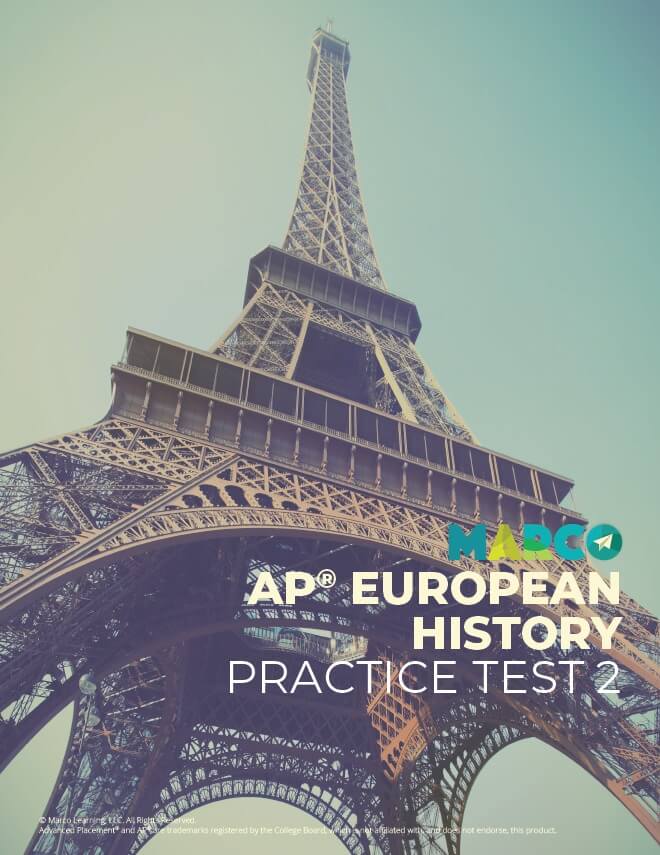


THE SCIENTIFIC REVOLUTION
After 1648, scientists began to challenge the teachings of the Church, as well as the ideas of Ptolemy, Aristotle, Galen, and other ancient authorities that had gained prominence during Renaissance Humanism. Participants in the Scientific Revolution used empiricism, the idea that truth should be based on observation and experimentation, and rationalism, the idea that truth should be based on observation and experimentation, and rationalism, the idea that any scientific ideas should be based on reason rather than emotion, to form their conclusions using the Scientific Method.
Galileo used the observational techniques of the Scientific Method, in combination with the Renaissance era ideas of Copernicus, to argue for heliocentrism. His ideas led to immediate conflict with the Catholic Church and the Inquisition, which accused him of heresy. He was forced to recant before spending the rest of his life under house arrest. Other scientific thinkers during the Scientific Revolution also faced challenges from the Catholic Church, including William Harvey, who broke the Church’s ban on autopsies to study the human body, and René Descartes, whose defense of deductive reasoning landed his book on the Church’s Index of Prohibited Books.
NEOCLASSICISM
Enlightenment ideas about rationality and seriousness influenced the development of Neoclassicism in art and architecture. Both art and architecture drew inspiration from the art of classical antiquity. The visual arts were distinguished through the use of clean lines, strong shading, and the absence of brush strokes in paintings. Neoclassical architecture, such as the Church of La Madeleine in Paris, France, featured columns, friezes that emphasized classical themes, symmetry, and decorative garlands.
THE ENLIGHTENMENT
Inspired by new innovations in astronomy, anatomy, and mathematics, many intellectuals in the eighteenth century started to apply the guiding principles of the Scientific Revolution to questions about society and human institutions. Many Enlightenment philosophies, such as John Locke and Jean-Jacques Rousseau, focused on the idea of the social contract. This was a way of thinking about the relationship between political leaders and the people they ruled that posited that rational governments should respect the will of the people as a political force, rather than simply allowing the ruler to have unchecked power by claiming their divine right of kings.
Adam Smith, another Enlightenment thinker, challenged the idea of mercantilism by suggesting that a more rational way of promoting the economy of nations would be to foster free trade. He argued that economic liberalism, defined as a free market economy, would ultimately promote economic growth if each participant in the system was allowed to act in their own self-interest.
THE ENLIGHTENMENT AND GOVERNMENT
Government institutions were not immune from the intellectual challenges of the Enlightenment. Many states, especially those in eastern and central Europe began to explore ways of combining some Enlightenment ideas with a hereditary monarchy. Enlightened absolutist monarchs, such as Frederick the Great of Prussia developed policies that reflected Enlightenment ideas, such as his decision to allow religious tolerance towards minorities in his territory. As a result of the power vacuum that resulted after the Holy Roman Empire declined after the Peace of Westphalia, Prussia with its enlightened monarchy took a more active role in European affairs.
In western Europe, the ideas of the Enlightenment led to more direct challenges to the structure of national governments and concepts of hereditary monarchy began to lead social authority. Resentment against hereditary monarchy began to lead to increasing secularization and a gradual loss of authority for the Church and the hereditary nobility. In France, this discontent over hereditary authority would become a long term cause of the French Revolution.
The Scientific Revolution developed a new way of understanding the world by placing emphasis on observation and rationality, which led to advances in astronomy, anatomy, mathematics, and philosophy.
CAUSATION
Guided by new methods of the Scientific Revolution, Enlightenment philosophies began to reevaluate the political structures and social values of European nations.
18th-CENTURY SOCIETY AND CULTURE
In the British Agricultural Revolution, new agricultural technologies meant that more food could be produced with less effort. This led to a chain reaction where the population expanded, and the new availability of healthy food, in conjunction with the development of the inoculation against smallpox, led to overall higher levels of health and higher life expectancies. The British Agricultural Revolution also displaced many people from rural areas who were forced to seek increased economic opportunity in urban settings. Cities offered economic opportunities for the people displaced by agricultural technology but also created social challenges for new urbanites and city governments that needed to address challenges of communal living and urban health and sanitation. Intellectual life in the cities centered around the coffeehouses, where people gathered together to discuss Enlightenment ideas.
With Europeans living longer overall, and infant mortality decreasing as a result of new scientific innovations, Europeans began to dedicate more time and resources to domestic family life. Jean-Jacques Rousseau, notable for his Enlightenment ideas in political theory, also developed ideas about the education of children that encouraged free thinking and reduced rote memorization in the classroom.
TIMELINE
1632 Galileo publishes “Dialogue on the Two Chief Systems of the World,” which used scientific observation to argue that the earth rotated around the sun.
1648 The Peace of Westphalia ends the Thirty Years War and leads to the rise of Prussia in European politics.
1689 Locke publishes his “Second Treatise on Government,” which argues that governments derive their power through the consent of the governed.
1740 Frederick the Great begins his reign in the Kingdom of Prussia. He attempts to implement many Enlightenment ideas while ruling as an absolute monarch.
1776 Adam Smith challenges the principles of mercantilism in “The Wealth of Nations.”
The best way to get better at something is by practicing.
That’s why it’s so important that you take practice tests to help you get better at the AP European History Exam. Only then can you expect to get a good score—and even improve your score.
Download your free AP® European History practice test HERE.
Download your printable study guides for all of the units for AP European History HERE.
 Help
Help